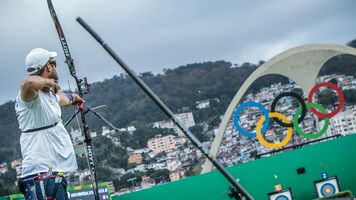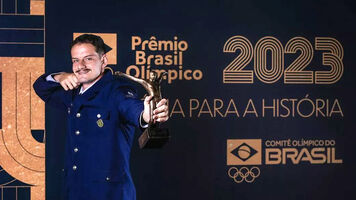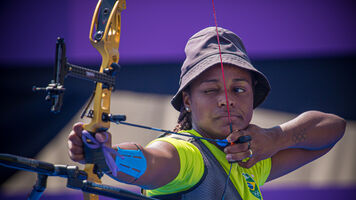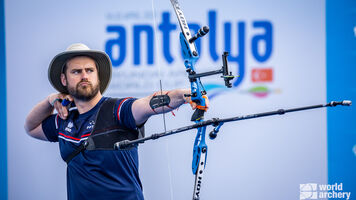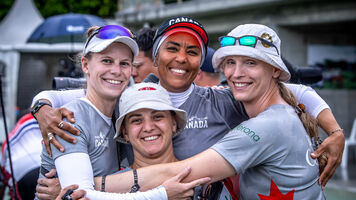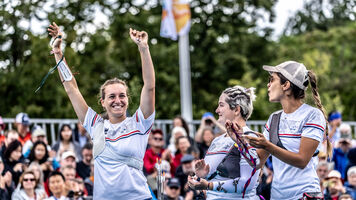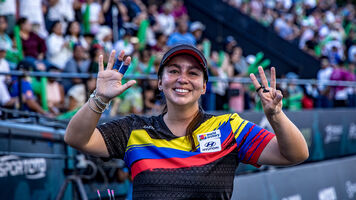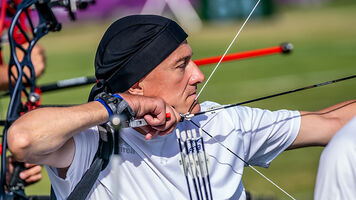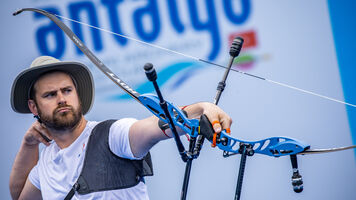Pan Am Games Champion Hernandez on nurturing next generation of El Salvadorian archers
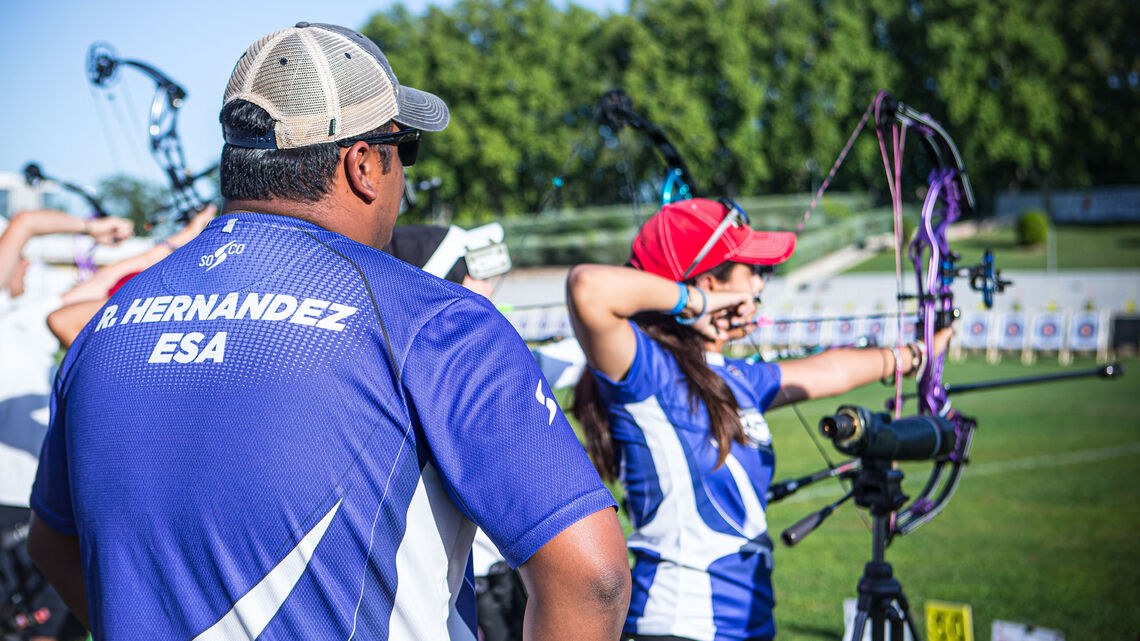
It was less than two weeks ago when Roberto Hernandez wrote history in Lima. The 30-year-old is the only man from his country to win gold at the Pan American Games – and only the second El Salvadorian winner in history.
(The first was Cristina Lopez, a race walker, in 2007.)
A busy schedule didn’t leave Hernandez time to celebrate his success at home. He spent this week behind the shooting line, or on the practice field, at the 2019 World Archery Youth Championships in Madrid, Spain. But he’s not got a bow.
“I haven’t returned to my country yet, but now, after the Pan Am Games, everybody told me I got really famous,” he said.
“There is a lot of people talking about me, I increased in my social media; I have many more fans. Archery is now a really popular sport in our country. Maybe it’s even in second place after football. That’s a lot for a sport which is not so common.”
Success is a normal way to spread a positive image of archery in El Salvador – and get the name of the country out there.
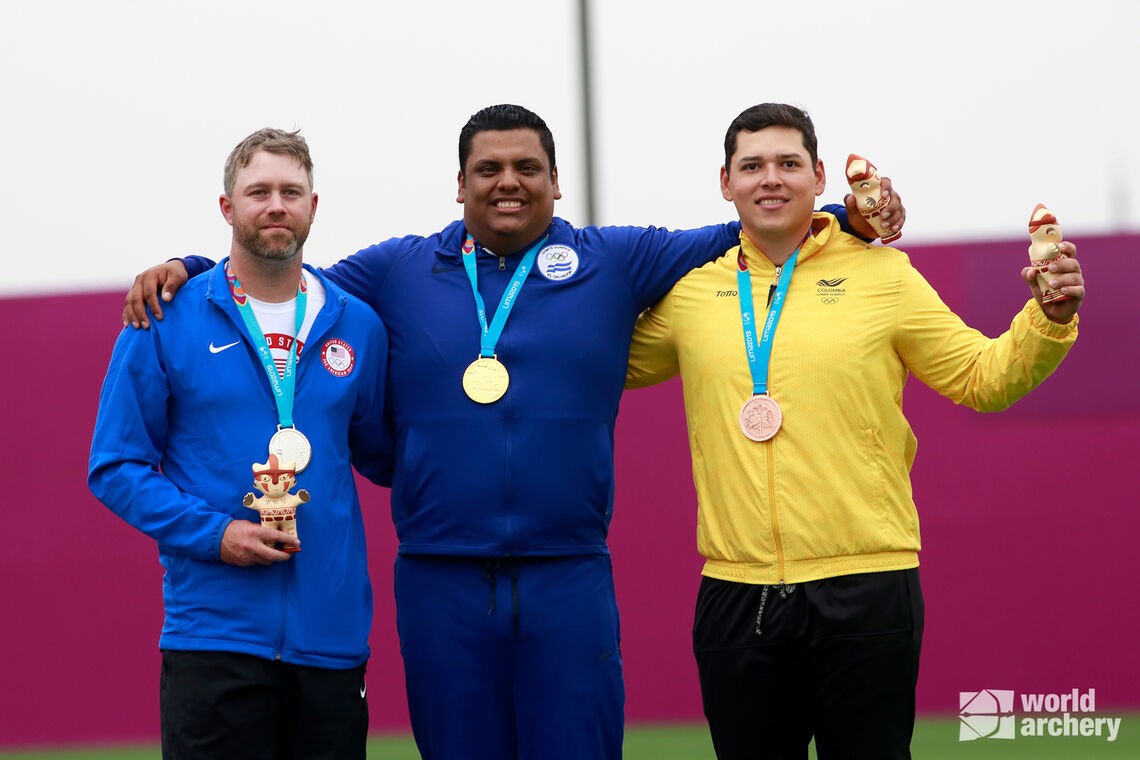
It‘s the smallest nation in Central America with a population – 6.4 million – that’s only twice that of the city of Madrid.
“For me, it’s a great opportunity to show that we’re a really small country with small resources but if we work really hard, we can do good things and we can reach the level of greater countries,” said Roberto.
In Madrid, the new Pan Am Games Champion is coaching Paola Corado. She’s a compound cadet woman.
Paola, like many of the archers back home in El Salvador, dreams to follow in Roberto’s footsteps.
“I can learn a lot from him. I feel like he can teach me things I couldn’t do with other coaches. You can see him doing the things he tells me and they really work – you can trust in him. He makes me a better archer,” she said.
“He helps me technique-wise and emotion-wise. I receive psychological help from him. He gives me exercises to prepare and, also, he helps with my personal life so I can be 100% in archery and everything is okay in competition.”
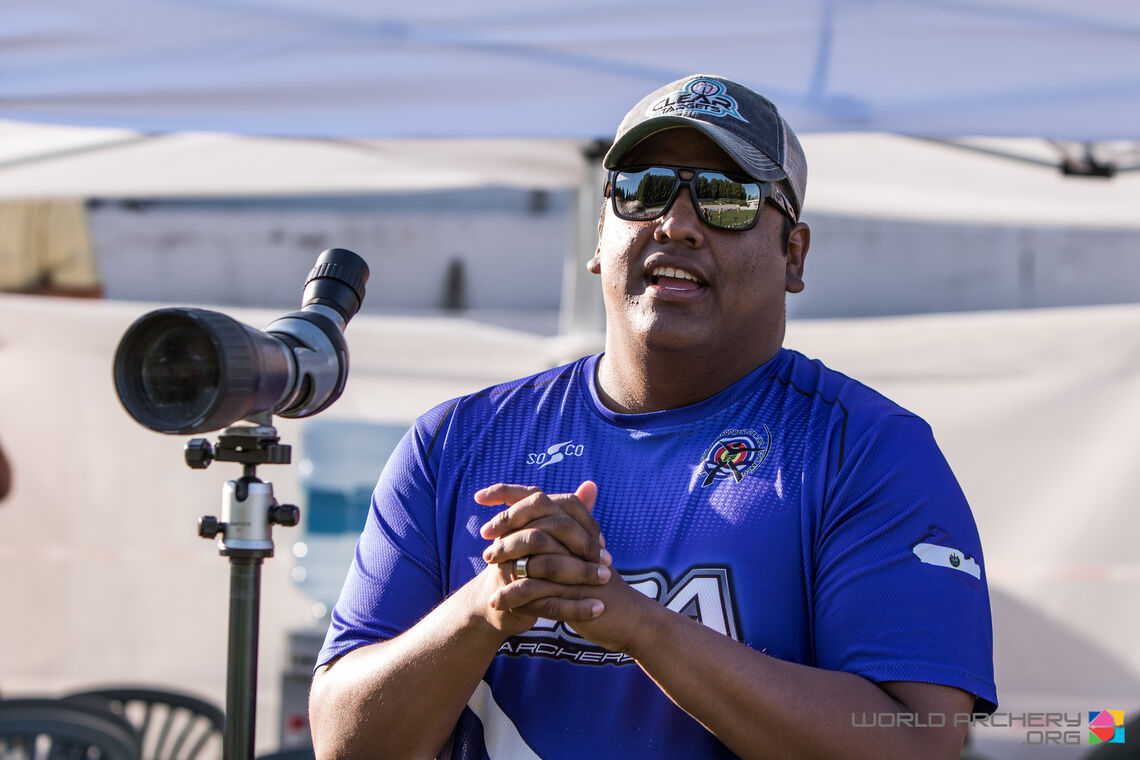
Hernandez is ranked in the top 10 in the world. But he’s coaching a group of young archers regularly at home while competing internationally.
“I think it’s difficult for them. I’ve spent almost a month out of the country. But I was always aware of their practice and I received videos to check technique,” he said.
“They are used to that because I have to travel a lot. I always try to find the time, then I think about my competitions. It’s fun, we can even practice together.”
Through the modern wonders of video calls and instant communication, the El Salvadorian archers have developed long-distance training regimes, even games. Roberto practises at an event and his athletes train with him, live, at home.
“If they can see that I can do great things in shooting and if they keep on working hard, someday they will be there,” said Hernandez. “The way that I shoot is not the way I teach. I study a lot, I talk to professional archers, I took classes of psychology in sport, I learn a lot about training plans.”
“I know there is a lot of stuff that works just with me and for them it's different. But I try to be an image for them. I know I have to put in a lot more effort because they're really good. The goal is that they beat me one day. And I will be happy about that.”
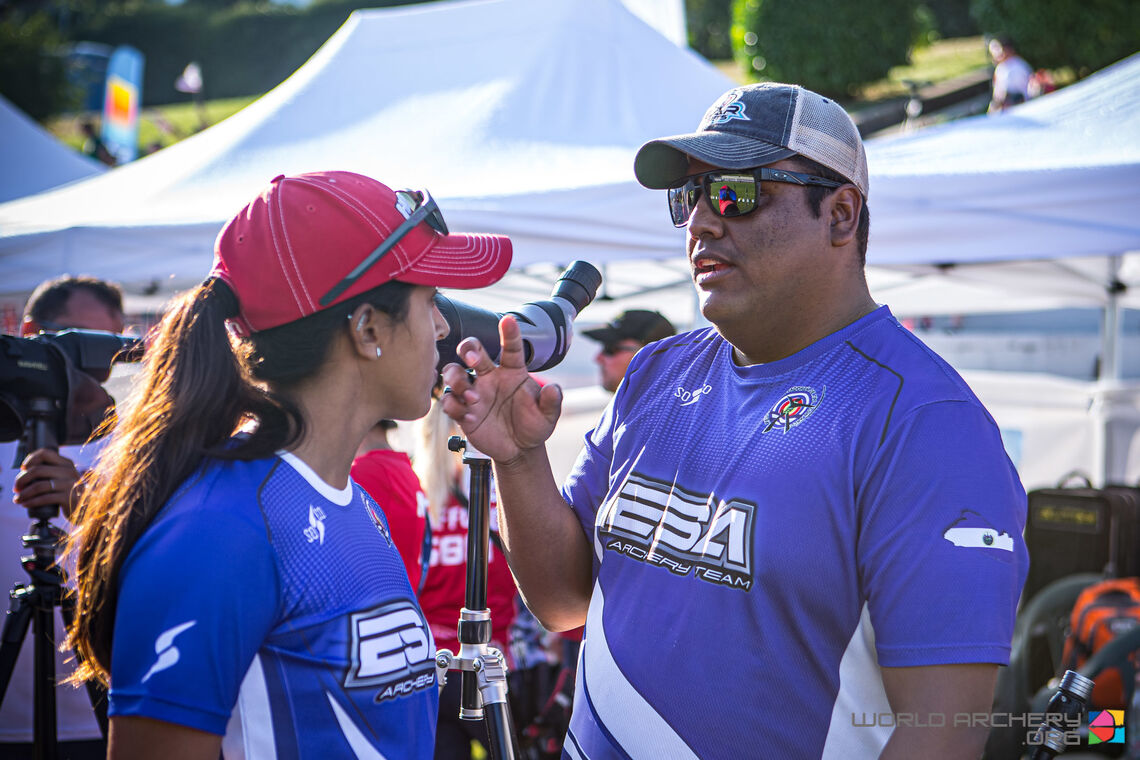
The El Salvadorian national championships has an open category. Men and women shoot against each other. Paola, the archer in Madrid, competes directly with her coach, Roberto.
When she or any of his other archers beat him in matchplay, Hernandez said he’ll be satisfied he’s done a good job.
Paola did well in Madrid. She scored 666 points for qualification and seeded 14th. She won her first match against Turkey’s Sevval Ozer but lost her second to Elisa Bazzichetto of Italy for a final ranking of ninth.
Paola scored 145 points in that second match. It was the highest losing score of the round.
“We’ve got high level. Paola made very good performance [for qualificaiton] on Tuesday. Of course, I thought it could be better but it was windy. Not the type of conditions that you’re used to,” said Roberto.
“Top 10 is awesome for her first experience in such a big event. She still has really long career ahead of her. And the experience she’s gained will help her to approach her goals in the future.”
Since the start of the World Cup era in 2006, Roberto is the second great El Salvadorian compound archer. He took up the mantle from Jorge Jimenez, now 51, who won the international circuit in its second year.
Hernandez is doing his very best to ensure that the tradition of success continues, both as an athlete and a coach.
Sixteen-year-old Corado is still at the start of her journey in the sport.
“I started archery because my best friend was practising it. She told me that I lived 10 minutes away from the field and I didn’t even know it,” she said. “We started together – but she is recurve now. I practised many sports in my life but I didn’t like any other as much as I like archery.”
Paola tried swimming, gymnastics and basketball before settling on her bow and arrow.
“I didn’t feel comfortable,” she said. “In archery, I felt I could be good.”
The 2019 World Archery Youth Championships takes place on 19-25 August in Madrid, Spain.




